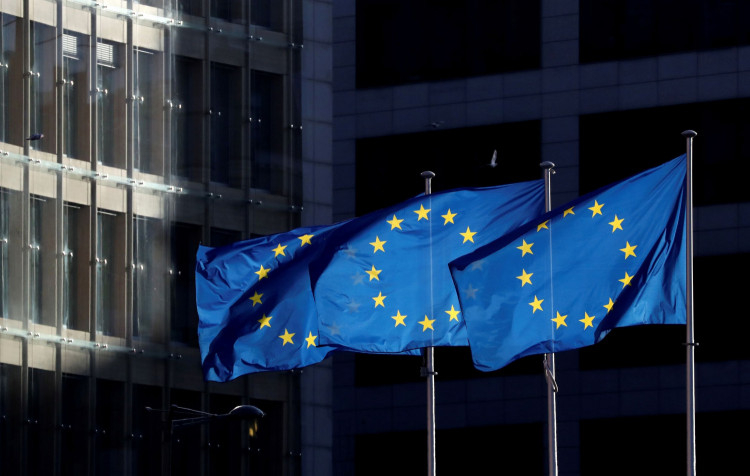Over the weekend, Jens Spahn, a key member of Germany's ruling Christian Democratic Union (CDU), revealed in an interview with the "Neue Osnabrücker Zeitung" that the CDU supports the plan to transfer refugees in Germany to third countries, with Central African nation Rwanda being considered. Spahn indicated that once implemented, the number of refugees in Germany would significantly decrease.
This public statement from a senior CDU member suggests that the UK's repeatedly thwarted "Rwanda Resettlement Plan" may set a precedent for other European countries. The UK's plan, initially proposed by then-Prime Minister Boris Johnson in 2022, aimed to relocate some asylum seekers crossing the English Channel from France to Rwanda. Italy and Austria have also shown considerable interest in third-country resettlement plans.
Germany, known for its generous refugee benefits and being the second-largest donor to the UN Refugee Agency, attracts a large number of refugees. In 2015, the escalation of conflicts in the Middle East and North Africa led to a refugee wave, with 1.1 million refugees arriving in Germany that year. Germany is now the world's third-largest host of refugees, with 2.2 million refugees, trailing only Iran and Turkey. Since the Russia-Ukraine conflict, over 900,000 Ukrainian refugees have successfully settled in Germany.
This year, regional conflicts combined with economic downturns have significantly increased the number of refugees in Germany. In the first six months, German authorities registered over 45,000 illegal entry cases, a 56% increase compared to the same period in 2022. The EU information database shows that last year, 244,000 people from other countries sought asylum in Germany, and this number is expected to reach 300,000 this year.
The growing number of refugees poses a severe financial burden on Germany, with local governments struggling. A September survey by infratest dimap revealed that two-thirds of respondents favor limiting the number of refugees, with eight out of ten supporting border control or temporary third-country resettlement plans to curb immigration.
With Chancellor Scholz's term halfway through and seeking more support, the CDU has made the third-country resettlement plan a core project for the 2025 elections. Spahn revealed in an interview last weekend that Rwanda has expressed willingness to accept refugees from Germany, and Ghana also shows a high willingness to accept refugees. Further negotiations are needed to determine whether Eastern European countries like Georgia and Moldova are willing.
The third-country resettlement plan will help Germany continue to fulfill its obligations under the Geneva Convention Relating to the Status of Refugees (also known as the "Geneva Refugee Convention") but relieve some pressure. The CDU has not yet detailed the specific operational procedures for the plan. The Geneva Refugee Convention, adopted at a special UN conference in Geneva in 1951, primarily prohibits signatory states from preventing refugees from entering their countries and from deporting refugees to countries where their lives and safety would be threatened.
However, since the convention does not specify that EU countries must provide asylum to refugees, Spahn believes that as long as Germany can provide a safe living environment for refugees, it is not violating the convention.
With increasing conflicts worldwide and Europe facing economic pressures, the continent cannot sustain such a large-scale influx of refugees.
Traditionally, Europe has either intensified efforts to repatriate illegal residents or encouraged refugees to integrate into local communities. However, most deported refugees remain in Europe in various ways, and support for refugees has led to financial strains and resource conflicts in many countries. For instance, the Netherlands has seen a significant increase in asylum seekers in recent years, leading to overcrowded reception centers. Last August, over 700 refugees slept outside a reception center in Ter Apel, the Netherlands, resulting in the death of an infant.
Last year, the UK announced a third-country resettlement plan to alleviate its refugee crisis but faced repeated setbacks. In April 2022, Johnson proposed sending some UK refugees to Rwanda, where they would obtain permanent refugee status and settle. Johnson viewed Rwanda as a vibrant country that would help asylum seekers start anew.
However, Rwanda, one of the world's least developed countries according to the United Nations, struggles with food self-sufficiency. Human Rights Watch reports concerning human rights and political repression in Rwanda, with frequent arrests and persecution of journalists and activists.
Gillian Triggs, Assistant High Commissioner for Protection at the UN Refugee Agency, criticized the UK's Rwanda resettlement plan as an evasion of refugee asylum responsibilities and obligations, violating the spirit of the Geneva Refugee Convention.
In 2022, after obtaining permission from the UK's highest court, the first group of illegal immigrants was scheduled to fly to Rwanda on June 14. However, minutes before departure, the European Court of Human Rights halted the plan, citing irreversible risks.
This year, UK Prime Minister Rishi Sunak inherited Johnson's Rwanda resettlement plan but faced a legal setback on November 15 when the UK's highest court deemed it illegal, doubting Rwanda's safety as a third country. Additionally, the international community criticized the plan for violating refugees' human rights.
Despite challenges, the Sunak government remains committed to the Rwanda resettlement plan. On December 5, Sunak signed a new treaty with the Rwandan government to continue implementing the plan. On December 8, the Financial Times revealed that the UK paid Rwanda an additional £100 million, totaling £240 million to date for the plan's initiation.
Currently, Italy's Prime Minister is considering launching a third-country resettlement plan in Albania, and Austria has also shown interest. These countries may face similar challenges to the UK in implementing similar plans. The most crucial step for them is to prove the safety of the third country. Additionally, ensuring the protection of refugees' human rights during the transfer and asylum process is a vital consideration for these nations.




